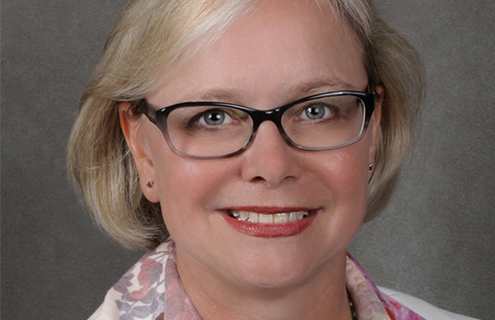Broadridge
With regulations at the forefront of investors’ minds, easier proxy voting can offer both peace of mind and efficiency, says Broadridge’s Patricia Rosch
What is unique about the Broadridge proxy voting service?
Proxy voting is growing in importance as a way for shareholders to communicate with the companies they invest in. As more and more investments are cross-border, the complexity of connecting issuers and investors across multiple jurisdictions is increasing. Broadridge connects global custodians, and their institutional and pension fund clients, with corporate issuers around the world using scalable local solutions.
We offer global proxy distribution, meaning we send documents electronically to institutions so that they then have the opportunity to vote their proxies in a timely, efficient and accurate manner. Those votes come back to Broadridge and we tabulate, record and communicate the results.
The feedback from global custodians is that they would like to outsource more of the proxy process, as well as some of the functions that would have previously been completed in a local market by sub-custodians. Broadridge is now able to offer an end-to-end proxy solution, with new services including direct agenda sourcing, translation into English, execution of vote instructions in local markets and recording meeting attendance. We will still drive the proxy distribution and conduct vote collection, but as part of our Direct Market Solutions, we’ve added these additional functions at the beginning of the process and at the end.
What were the main drivers for this development?
There were two main drivers—the first is the significant market change in Europe that came with Target2-Securities (T2S). T2S necessitated changes related to things such as collateral management, but proxy is also a key component. It is much more efficient for global custodians to pick a single-source solution provider, so Broadridge has applied its local market expertise to develop direct market solutions.
We have seen interest in direct market solutions in countries like Australia and Hong Kong, proving that the straight-through-processing model is not only applicable in Europe, but it also addresses the demand for efficiency from clients around the world.
The second driver is that market participants are looking for operational efficiency. We have made considerable investments in over 100 different markets, and are able to offer a one-stop shop for these services.
In the past, local custodians and sub-custodians may have either developed their own versions of this, or relied heavily on manual processes or procedures. Direct market solutions deliver automation and a managed service allowing those companies to benefit from that scale. That means that when there are further changes in the market, we manage them and our clients can focus on their businesses.
What kind of benefits do the institutional investors see?
Every local market is different, so we have to be able to work effectively with particular market participants. For example, we have a joint venture with the Tokyo Stock Exchange called Investor Communications Japan (ICJ). Here, we are working with the central securities depository and the other market participants to connect investors worldwide to the Japanese issuer community.
We have had a relationship with the Tokyo Stock Exchange since 2004. At that time, investors had to submit their votes 10 days before the meeting date, and we have now reduced that to one day. The more time an institutional investor has to review the materials, the more effective their decision-making can be, and that has been very well received by investors around the world. From an efficiency perspective, we are always looking at how we work with the market participants to benefit issuers and institutional investors as well as custodians, and ensure that we’re facilitating better proxy distribution and voting.
As proxy voting is made easier, are you finding more investors are using their votes?
Definitely. Every year we see an increase in votes. Globally, we saw a 12 percent increase in shareholder voting last year, and that’s good for public corporations and good for corporate governance. The joint venture in Japan actually came about in order to generate more cross-border investment by making proxy voting easier, so the impact on capital markets can be really positive. The newly introduced Japanese Corporate Governance Code encourages participation in ICJ as a means of improving governance through a more efficient and effective proxy model.
If a market wants to increase foreign investment, it has to be able to demonstrate a good governance infrastructure. Investors will be more willing to invest in markets where they know the regulatory framework, and processes to support it, exist. Vote entitlement and annual meetings are a big part of that.
Good corporate governance means more transparency, which means more investment. If people are confident in a jurisdiction, they will invest there, and that is what we have seen in Japan.
There has also been more and more importance placed on understanding the proxy process, and vote entitlements are now taken very seriously. Today, when we ask global custodian clients what their priorities are, proxy voting is one of them, because institutions want to show their clients that they’re investing responsibly.
Understanding market changes and business drivers, like the need for greater operational efficiency, ensures that solutions that enable cross-border proxy processing continue to evolve to meet participants’ needs.



